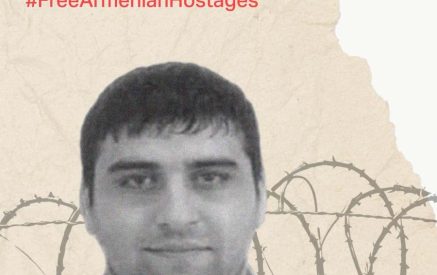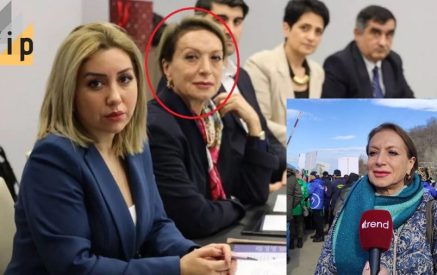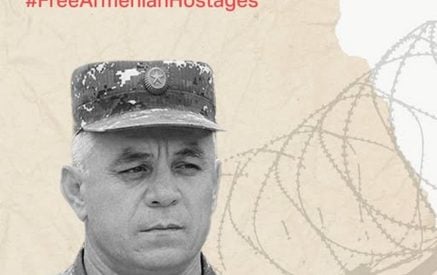The Artsakh’s (Nagorno-Karabakh) 120,000 indigenous people are totally besieged by Azerbaijan, for two months exacerbating the critical shortage of medicines and medical supplies, the Associated Press writes.
ARTSAKHPRESS: To address this pressing issue, Artsakh’s authorities have urgently applied to the International Committee of Red Cross (ICRC) to evacuate especially patients undergoing haemodialysis to Armenia. Failure to take this action will result in the patients’ demise within a week due to the absence of essential treatment.
This dire situation is intensifying day by day, compelling patients to make heart-wrenching choices between forced displacement and the looming threat of death due to the scarcity of vital medical care. Of the 41 patients regularly receiving hemodialysis in Artsakh, the ICRC has already evacuated 29.
Read also
Dr. Kristina Avagimyan, a rheumatology specialist, warned, “Within approximately two weeks, the required medical supplies for hemodialysis will be depleted, forcing us to consider evacuating patients. Without hemodialysis, nitrogen levels in patients’ bodies will surge, leading to death within a week. These patients are particularly vulnerable due to the blockade, which prevents them also from adhering to a special diet, further endangering their lives and well-being.”
Seeking care in Armenia poses an equally severe threat to individuals like Vera Hovsepyan, a 64-year-old hemodialysis patient for the past five years who has lost her eyesight. “I am confined to my bed and yearn to live. Individuals like me also deserve a chance at life. I implore the global community to aid the people of Artsakh and all critically ill patients in their fight for survival. Given my condition, I cannot travel to Yerevan for treatment. I want to pass away in my wheelchair here in Artsakh and be laid to rest in my homeland.”
When kidney function deterioration becomes life-threatening, dialysis or kidney transplantation is necessary. Dialysis eliminates waste and excess fluid from the blood when the kidneys malfunction. This method is employed in the final stages of severe kidney failure when the kidneys cease to function.
Azerbaijan’s obstruction of vital medicine and medical supply transportation to Artsakh via Red Cross vehicles has led to rapid depletion of life-saving resources, causing fatalities and deteriorating health conditions. The blockade-imposed absence or critical shortage of medication, malnutrition, stress, postponement of essential surgeries and examinations, in comparison to last July, have increased mortality rates from cardiovascular diseases with 2.6 times and from cancer with 16%. Medically necessary abortions have quadrupled, fainting cases have doubled, and anemia among pregnant women has reached 90%.
Background Information
Following a six-month blockade with limited humanitarian aid, Azerbaijan has completely blocked the flow of food, medication, fuel and all other essential supplies from Armenia to Artsakh since June 15. This total siege extends to ICRC and Russian peacekeepers through the Lachin Corridor, the sole route connecting Artsakh to the outside world.
Azerbaijan’s refusal to comply with the UN International Court of Justice’s legally binding order of February 22, 2023, which obliged Azerbaijan “to ensure unimpeded movement of persons, vehicles and cargo along the Lachin Corridor in both directions.” In contrary, the Azerbaijani authorities have persistently disrupted the supplies of gas, electricity, food, medication, fuel and other essentials from Armenia.
Last week, Luis Moreno Ocampo, the former Chief Prosecutor of the International Criminal Court, released an impartial report on Azerbaijan’s imposed blockade of Artsakh. The report concluded that the ongoing situation constitutes genocide according to Article II of the Genocide Convention: “(c) Deliberately inflicting on the group conditions of life calculated to bring about its physical destruction in whole or in part.” Ocampo emphasized that “Starvation is the invisible Genocide weapon. Without immediate dramatic change, this group of Armenians will be destroyed in a few weeks.”
On August 7, a group of UN experts expressed concern over Azerbaijan’s continued blockade of the Lachin Corridor and the dire humanitarian crisis in Nagorno-Karabakh. They warned that Nagorno-Karabakh is “rapidly depleting its medical reserves, and hospitals are struggling to provide care as the operation of ambulances has been hampered due to declining fuel supplies.”
On August 11, the Republic of Armenia appealed to the UN Security Council with a request to convene an emergency meeting regarding the deterioration of the humanitarian situation as a result of the total blockade inflicted upon the civilian population of Nagorno-Karabakh.


























































